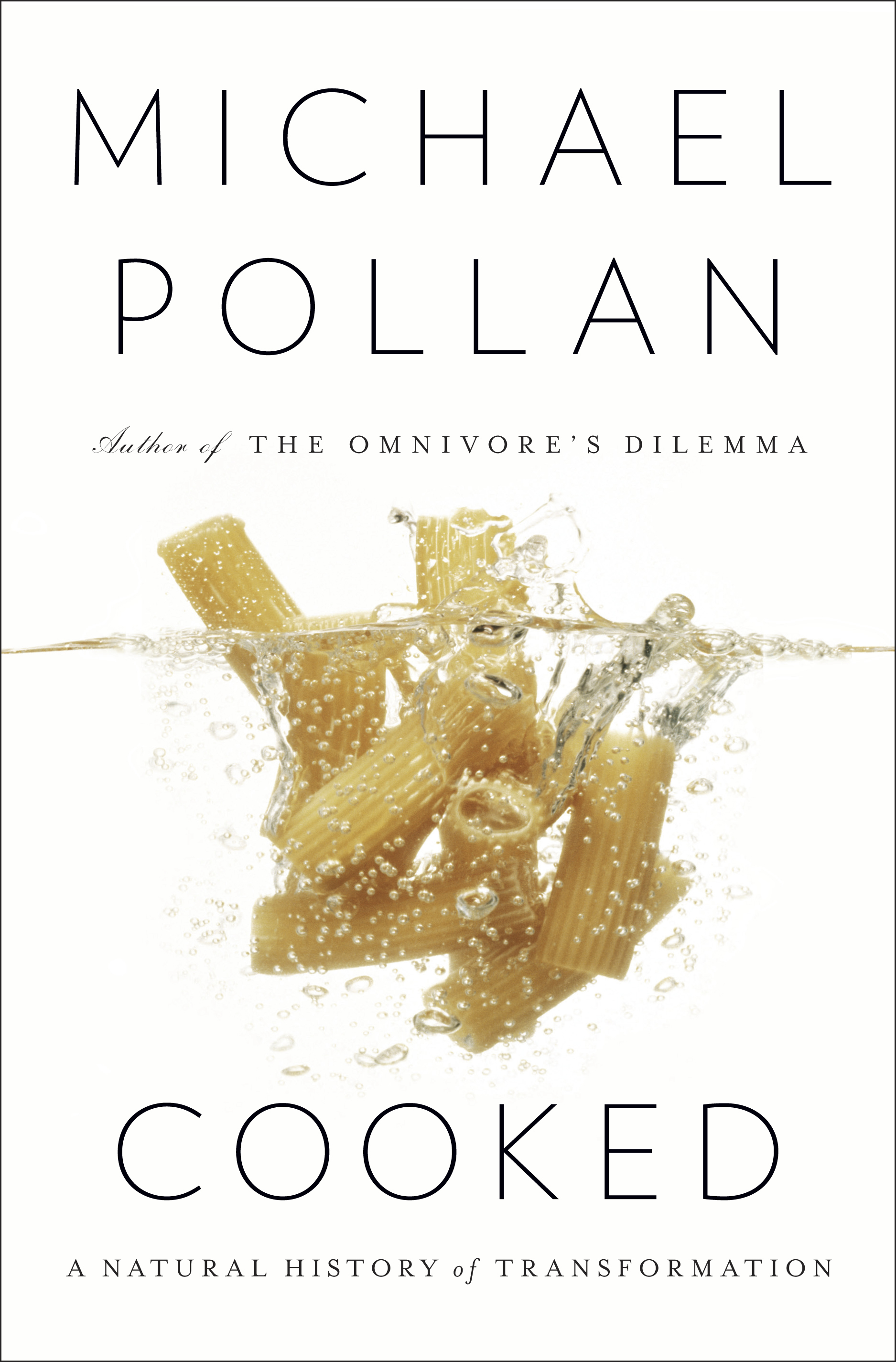If the words locavore and sustainability are part of your dietary vocabulary; if you feel The Omnivore's Dilemma every time you push a shopping cart through the supermarket; if you scrupulously avoid industrial food products and make a concerted effort to shop farmers' markets and eat grass-fed beef, chances are you have Michael Pollan to thank.
And now the journalist, activist, and author of such New York Times bestsellers as Food Rules and In Defense of Food turns his formidable intellect and wry reporting skills to the one act that separates humans from all other animals: cooking. You may be surprised to learn that the man known for his mantra "Eat food. Mostly plants. Not to much," devotes the first half of his new book, Cooked: A Story of Transformation (Penguin Press) to meat, including a brilliant 121-page essay on barbecue.

This is no cookbook (although it does conclude with four iconic recipes). It's a profound meditation on what cooking means -- technologically, biologically, sociologically, even philosophically -- and to answer this profound question Pollan delves into disciplines as diverse as history, chemistry, physics, aesthetics, psychology, anthropology and religion.
Pollan also traces his personal climb up the ladder of barbecue enlightenment. Tongue planted in cheek, he begins his journey in abject ignorance: "As a Northerner, I'd already spent more than half my life as a serial abuser of that peculiar word, which is to say, as a backyard blackener of steaks and chops over too-hot fires -- over flames! -- with a pitiable dependence on sauce."
So Pollan enlists the aid of two mentors -- legends of North Carolina barbecue. Samuel Jones is the fourth generation owner of the Skylight Inn in Ayden (motto: "If it's not cooked with wood it's not Bar-B-Q"). Ed Mitchell (pictured, above, with Pollan) runs the Pit in Raleigh (motto: "There's something about cooking a whole animal that makes people feel happy."). Pollan even puts his own skin in the game, volunteering as an assistant pit master at in Big Apple Barbecue in Madison Square in New York City.
Pollan's epoch journey takes you from primeval Africa (where a distant human ancestor called Homo erectus first learned to cook food with fire) to animal sacrifice in the biblical Holy Land; from the fire myths of the Homeric Greeks to the barbacoaof the Taino Indians in Hispanola; from the stomach-turning CAFOs ("Concentrated Animal Feeding Operations -- industrial feed lots of the South) to the visionary modernist grilling of Bittor Arguinzoniz, chef-owner of the Michelin-starred restaurant Extebarri in Spain's Basque Country.
Pollan is equally at home quoting Freud (and his cockamamie theory on the male urge to micturate on fire) as he is swinging a meat cleaver. French structural anthropologist Claude Levi-Strauss weighs in on the symbolic significance of the raw and the cooked; the 20th century French doctor, Louis-Camille Mallard, describes how heating amino acids with sugar produces the hundreds of new flavor molecules we associate with roasted meat -- the so called "Maillard effect" prized by grill masters today.
As for the definition of barbecue, a pit master from Alabama named Sy Erskine sums it up best: "The mystic communion among fire, smoke and meat in the total absence of water."
Once you've mastered the section on "Fire" (Pollan organizes his book by the four essential elements of the Ancients), you can learn about "Air" (the process whereby flour and yeast become bread -- essential in making buns for a barbecue sandwich) and "Earth" (the technique of fermentation that transforms cabbage into sauerkraut). And in foul weather, you can follow the "Water" section to learn how to braise that pork shoulder in the oven.
This is food writing at its best. Whether you're a working pit-master or an armchair philosopher, Michael Pollan's Cooked will make your mouth water -- and make you think.
TRY THESE RECIPES!
DON'T MISS THIS!
Steven Raichlen is the author of the Barbecue! Bible cookbook series and the host of Primal Grill on PBS. His web site iswww.barbecuebible.com.
